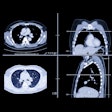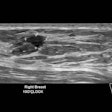A U.K. tribunal has dished out a six-month suspension to a researcher who admitted making false claims about a publication in a job application form and at an interview.
On 3 April 2023, Dr. Muhammad Basharat applied for the post of clinical fellow within NHS (National Health Service) Lothian's Cardiothoracic Intensive Care Unit. NHS Lothian is one of the 14 regions of NHS Scotland, and it provides healthcare services in the City of Edinburgh, East Lothian, Midlothian, and West Lothian council areas. He then had an interview for the post on 3 May.
At a hearing that ended on 13 August 2024, the Medical Practitioners Tribunal Service (MPTS) stated that in or around December 2018, Basharat submitted a paper entitled "Behaviour of medical students towards the patients of leukemia and AIDS" for publication by the Indo American Journal of Pharmaceutical Sciences. However, he had plagiarized the work of others from the paper "Attitude of medical students towards AIDS and leukemia patients," Pakistan Journal of Medical Sciences 2012; 28(1): 187-191.
During the 2023 NHS Lothian interview with Dr. Sean Keating and two colleagues, Basharat volunteered a copy of the 2018 paper as the interviewers had been unable to find it, and he answered questions on it. Basharat, who obtained an MBBS degree in 2017 from Sheikh Zayed Medical College at the University of Health Sciences Lahore, Pakistan, knew that he had plagiarized the work, that he had not been involved in the work cited within the paper, and that this might give him an unwarranted advantage in the selection process.
After the interview, Keating and his colleagues found a copy of the 2012 publication and reviewed it in conjunction with the 2018 paper. They noted the significant similarities between the two documents, and Keating raised his concerns with the General Medical Council.
The tribunal noted that "although Dr. Basharat described the misconduct as a mistake, in fact, this was deliberate and planned dishonest conduct. It was not spur of the moment." He allowed the dishonesty to continue for more than four years, even though there were multiple occasions when he could have reconsidered his dishonest conduct, but he did not do so until others discovered his actions.
Basharat argued that English was not his native language and so his use of the word "mistake" reflected his error in translation. He accepted that his actions were deliberate and that he had "followed the wrong path," but he said this was the "first-ever wrong thing" in his professional life and he had done it at the start of his career.
Taking everything into account, the tribunal concluded that Basharat's actions amounted to serious misconduct. He now has an opportunity to appeal.




















